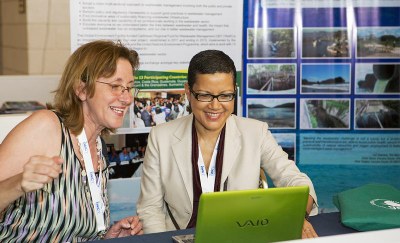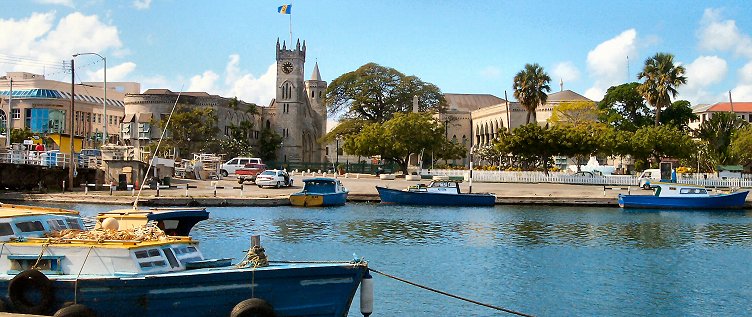IWC7

The IWC7's Objectives and Theme
The GEF IW Conference objectives are to facilitate cross-sectoral and portfolio-wide learning and experience sharing. It strives to solicit advice from the existing GEF IW portfolio on burning issues, and to assist in building participant capacity in key management and technical areas. Participants sum up progress achieved and also look to the future of programming within and beyond the GEF IW focal area.
Recommendations from the 2012 GEF IW Science Conference pointed to the unique opportunity to use the TDA/SAP process as a vehicle to bridge the science-policy gap through the use of scientific panels, science-policy fora, and dissemination of state-of-the-art methods and tools. One major set of methods and tools highlighted was the use of economic valuation of direct and indirect-use values of ecosystems. IWC7, under the theme, Economic Valuation as a Tool to Bridge the Science-Policy Gap, saw special emphasis on reviewing the economic valuation of international waters and the links between economic valuation and science, as well as mechanisms for linking both to policymaking.
The IWC7 convened 208 participants, including GEF IW project managers, representatives of beneficiary countries, non-governmental organizations, transboundary management institutions, UN Agencies, and the private sector. Participants were invited by the GEF Agencies implementing IW projects.

As a Small Island Developing State, Barbados was selected to host IWC7 in part to highlight the threats posed to SIDS’ water security on account of rising sea levels and saline intrusion of coastal aquifers, rainfall variability and reduced catchment recharge, and increased frequency of natural disasters. Conference participants took part in one of three technical site visit tours around the island that showcased Barbados’ water management approaches to land-use planning, coastal risk reduction and groundwater protection.
A conference targeted workshop aimed to determine how best to incorporate economic valuation into future GEF IW project implementation, such as how to include methodologies in the formulation of a transboundary diagnostic analysis and how to better translate scientific findings into policy development. Results from small table dialogues among participants indicate that economic valuation is a useful tool that can support improved decision making and guide institutional framework development; influence allocation of financial resources and investments; raise awareness of various impacts in shared water systems; and ultimately lead to better governance of transboundary waters.
The IWC7 featured an innovation marketplace (exhibit area), opportunities for focused learning on scientific and technical innovations, interactive training for IW project managers and country representatives, and interaction with the GEF Secretariat, GEF agencies and several partner institutions working on International Waters projects. The IWC7 also featured participant-directed workshops and roundtable discussions.
Important dates
| Registration Opened | 31 July 2013 |
|---|---|
| Finalization of Visa Arrangements | 11 Oct. 2013 |
| Closure of Registration | 16 Oct. 2013 |
| Targeted Workshop for GEF IW Project Managers and Agencies | 26-27 Oct. 2013 |
| IWC7 | 28-31 Oct. 2013 |
| Technical Site Visits | 29 Oct. 2013 |
| Roundtable | 30 Oct. 2013 |
| Gala Event | 30 Oct. 2013 |


























